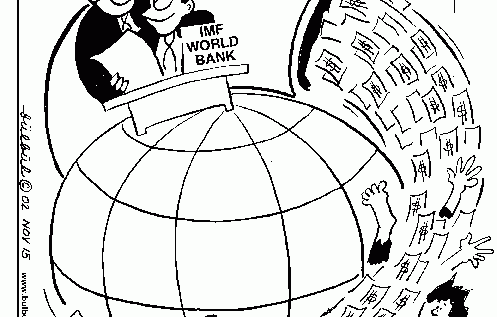Why the Copenhagen Climate Talks Matter
They won’t likely deliver a new global treaty on global warming, but the decisions made here may still change our lives.
NEW YORK (CNNMoney.com) — It’s a massive jamboree, with tempers on both sides of the issue running hot and no final deal in sight.
But even so, we’d better pay attention to what transpires here, the consequences of action or inaction may be massive.
Starting Monday, 15,000 people are expected in Copenhagen, Denmark. Over the next two weeks they’re supposed to be hashing out a successor to the Kyoto Treaty, the global deal regulating greenhouse gases that expires in 2012.
Among them will be over 100 world leaders, including President Obama and half his cabinet.
Hundreds of environmentalists are also expected, some protesting outside the massive convention center. With the world’s top scientists saying global warming is caused by humans and that quick action is needed to avoid devastating consequences, the environmentalists will be pushing for cuts in greenhouse gases that go far beyond what most nations are proposing.
On the other side will be a handful of U.S. senators opposed to any deal at all. The ring leader of this group is James Inhofe, the Oklahoma senator who has famously called man-made global warming “the greatest hoax ever played on the American people.”
They’ll question the science behind global warming, holding up recently hacked e-mails from prominent climate scientists. The e-mails apparently show the scientists, frustrated with a small but vocal group of global warming skeptics, trying to keep dissenting opinions out of prominent journals and attempting to hide inconsistencies in the overall data.
Most independent analysts say the hacked e-mails do not change the nature of the debate – the e-mails, however inappropriate, don’t undermine the consensus of hundreds of scientists that have been studying this issue for decades.
Still, might there be conflict between the believers and skeptics at the convention? “It’s a good question,” said Kyle Ash, a legislative representative for Greenpeace who’s already in the city. “I’m excited to see what happens.”
While a new Kyoto treaty isn’t expected, thanks in large part to the U.S. Senate’s inability to move climate legislation already approved in the House, experts expect the framework for an eventual deal will take shape.
What that deal looks like will ultimately affect how much Americans pay in their gas and electric bills, and how quickly the world cuts greenhouse gas emissions.
“It will set the stage for what’s to come,” said Divya Reddy, an energy policy analyst at the Eurasia Group, a political risk consultancy. “And that will translate into changes in lifestyle and energy costs.”
Conference organizers at the United Nations are pushing for three main objectives:
-Numbers from each nation as to how much they can reduce greenhouse gases.
-How those reductions might be achieved.
-And how much money the developed world is willing to give developing nations as they attempt to cut pollution.
President Obama recently pledged that the United States can reduce emissions by 17% from 2005 levels by 2020. Others nations measure cuts from 1990 levels. Using this standard, the U.S. cut is roughly 4%.
The European Union has already pledged to cut emissions by 20% from 1990 levels by 2020, and has said it might even go for a 30% cut if others nations promise big reductions.
China says it can’t cut overall emissions, but is instead promising a 40-45% cut in carbon intensity — the amount of emissions created in relation to the growth of its economy — from 2005 levels. India, Brazil and a host of other nations have pledged similar reductions.
Obama’s proposal is roughly in line with legislation passed in the House, and slightly less aggressive than a bill in the Senate. The Congressional Budget office estimates the House version will cost the average American household $175 a year by 2020.
Scientists have two deadlines for when reductions must be made. Obama’s reductions are far below the 25% to 40% cuts scientists say are needed by 2020 to head off the worst effects of climate change. But U.S. lawmakers say their plan will ultimately achieve the reduction scientists say must be made by 2050.
Conference organizers originally hoped to make these commitments binding law in Copenhagen, but experts say Obama won’t move on any deal until he’s sure the Senate will pass a climate bill similar to the one that passed the House this summer.
“It is unlikely that the United States will sign up to a commitment on which it does not think it can deliver,” Deloitte analysts Nick Main and Joseph Stanislaw wrote in a recent research note. “The passage of that [Senate] bill and any eventual passing of legislation will be a fundamental prerequisite to any agreement.”
The Senate was expected to take up a climate change bill early in 2010, but with health care reform still unfinished and financial regulation reform slated next, passing a climate bill anytime in 2010 now looks optimistic.
As for money to help developing nations tackle emissions and deal with climate related problems like rising sea levels, Greenpeace is calling for $140 billion a year to be transferred from rich nations to poorer ones.
It’s a number broadly in line with what other analysts expect will eventually be passed, although the breakdown of who pays for what is uncertain. Europe has agreed to contribute $22 to $40 billion a year. In the U.S., the House climate change bill allocates at least $8 billion a year, a figure that’s already baked into the estimated $175 yearly household cost.
Ultimately, most analysts expect Copenhagen will result in a statement of broad principles and agreed upon goals, but little in the way of action.
“The room for surprises is pretty limited,” said Paul McConnell, a carbon analyst at Wood Mackenzie, an energy consultancy.
The next major global meeting on climate change is set for next December in Mexico, and will likely be the next opportunity for supporters of mandatory cuts to get a binding agreement






Thank you for giving such a useful weblog. Your blog is not just informative but also very artistic too. There are very few bloggers who can think to write technical stuff that creatively. A lot of people keep looking for knowledge regarding this topic. I have gone through many blogs to build up on information regarding this.Keep posting !!